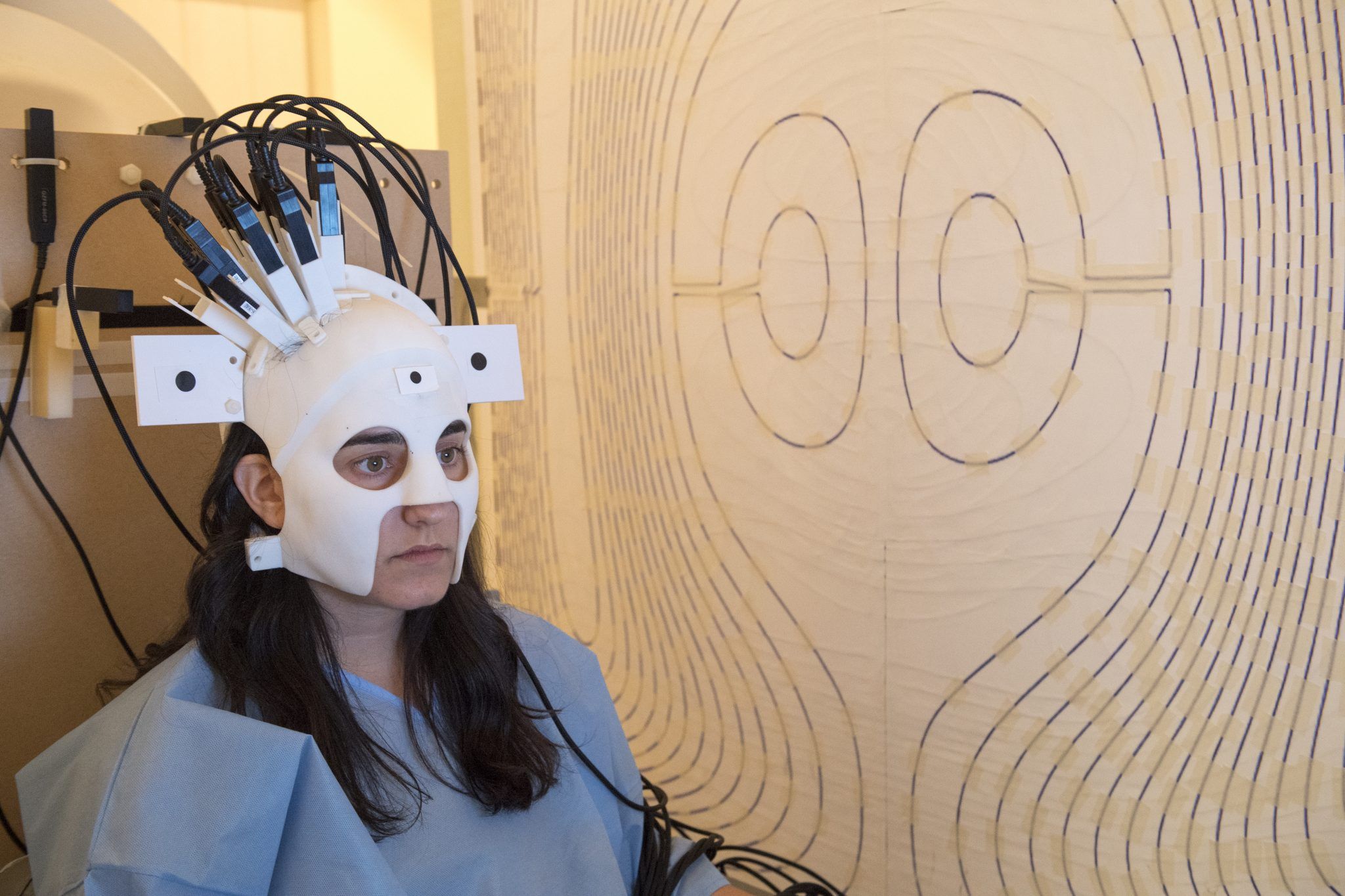“Room temperature quantum sensors can be mounted directly on the scalp of any subject. This will give us a projected four-fold increase in sensitivity for adults, but the sensitivity could potentially be up to a 15 or 20 fold increase for children or babies.”
A £1.6 million collaborative project between scientists at the University of Nottingham and University College London (UCL) is looking to improve the way we map the human brain. Focusing on the development of magnetoencephalography (MEG), researchers have 3D printed a prototype helmet that may yield quadruple the sensitivity of current MEG devices.
Reading at room temperature
In MEG, sensors capable of detecting the most sensitive magnetic fields emitted by the brain are added close to the scalp. Traditionally, these sensors would require cryogenic cooling (down to – 269 degrees) for operation. Nottingham and UCL’s MEG device uses the newly invented SERF sensors meaning that they can operate at room temperature and be placed directly on the skin.

It looks scary, but it’s definitely good news that it will scan your brain.